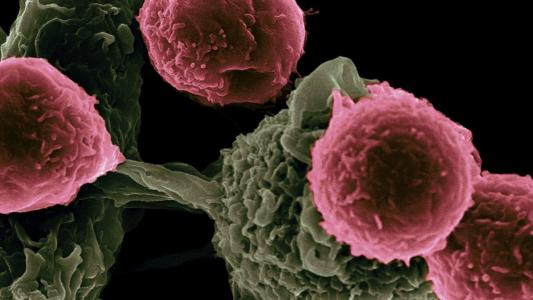A massive international study has found that a single course of a cheap, generic, and shelf-stable drug cut the risk of maternal sepsis after birth by more than a third.
The study backers estimate that the drug could prevent 2 million cases of sepsis — a deadly infection complication — in mothers every year.
A four-pill course of azithromycin, an antibiotic discovered over 40 years ago, cut the risk of maternal sepsis by 35% for mothers in low- and middle-income countries. A previous study in the US found IV azithromycin was highly effective at reducing maternal sepsis risk in C-section patients, cutting rates by about half, and it is now a recommended practice for cesarean births.
A four-pill course of azithromycin, an antibiotic discovered over 40 years ago, cut the risk of maternal sepsis by 35% for mothers in low- and middle-income countries.
“It’s a huge effect. If you were to apply any intervention that had an effect size of 35% to such a large population of people, the potential is enormous,” Julie Gerberding, CEO of the Foundation for the National Institutes of Health (FNIH), which backed the study, told STAT’s Helen Branswell.
“And the fact that it is affordable, available, and we’re not talking about a long course of treatment — we’re talking about a dose — so it’s very practical from that standpoint,” Gerberding said.
Cutely named A-PLUS (“Azithromycin Prophylaxis in Labor Use Study”), the trial, published in the New England Journal of Medicine, was ended early when independent analysis showed clear benefits for the therapy over placebo.
What is sepsis? Sepsis is a potentially life-threatening condition where the immune system overreacts to infection, damaging healthy tissues, sometimes leading to organ failure or even death. According to the NIH, the condition is a leading cause of both maternal and newborn deaths, especially in low-income countries.
“We urgently need effective strategies to prevent pregnancy-related infections, which account for roughly 10% of maternal deaths worldwide,” Diana W. Bianchi, director of the NIH’s Eunice Kennedy Shriver National Institute of Child Health and Human Development (NICHD), said in a statement. NICHD was the primary funder of the study.
An intervention that prevents sepsis in mothers could have a knock-on benefit for babies, too. Maternal sepsis increases the risk of infant sepsis, which accounts for 16% of neonatal deaths worldwide, according to Branswell. (Azithromycin may not be the one, however — the study found no reduction in the risk of newborn sepsis, newborn death, or stillbirth.)
The study: Begun in 2020, A-PLUS enrolled pregnant women who planned a vaginal birth at sites in Bangladesh, India, Pakistan, Guatemala, Zambia, and the Democratic Republic of the Congo.
From September 2020 to August 2022, the study randomized 29,278 patients into two groups: one receiving a two-gram oral dose of azithromycin during labor, the other a placebo.
In the six weeks after delivery, 2.3% of the patients in the placebo group developed maternal sepsis, compared to 1.5% in the azithromycin group. Women who got azithromycin were also less likely to develop endometritis — inflammation in the lining of the uterus caused by infection — and they had fewer unscheduled medical visits or returns to the hospital than their placebo peers.
“We hope that our findings will be applied to help improve maternal care in low- and middle-income countries around the globe.”
Alan Tita
The researchers who ran the study believe that the good news may in fact be even better, study lead author Alan Tita told Branswell.
Many of the mothers in the South Asian study locations, including those in the placebo group, were already taking other forms of antibiotics; this could have reduced their risk of maternal sepsis, understating the impact of azithromycin on its own. In Africa, azithromycin appeared to have a larger effect, cutting the risk of maternal sepsis or death by around half, from 3.1% in the placebo group to 1.4% in the treatment group.
The upshot: The trial did have limitations, the authors noted. In addition to the preexisting antibiotic use, rates of unplanned C-sections were higher in the non-African sites, factors that may have “blunted” the drug’s perceived impact on maternal sepsis.
Preemptively treating a large group of people with antibiotics could potentially have detrimental effects on the microbiome of mother and newborn, and it may have some impact on the evolution of drug-resistant infections. The study cautions that “more long-term data are needed to inform the association between the routine use of oral azithromycin prophylaxis for vaginal delivery” and effects on drug-resistance and the microbiome.
Even with those concerns, the impact of a simple, cheap, and easy intervention for maternal sepsis could make a huge difference in the lives of mothers and children — especially in the nations that need it the most.
“We hope that our findings will be applied to help improve maternal care in low- and middle-income countries around the globe,” Tita said.
We’d love to hear from you! If you have a comment about this article or if you have a tip for a future Freethink story, please email us at [email protected].






